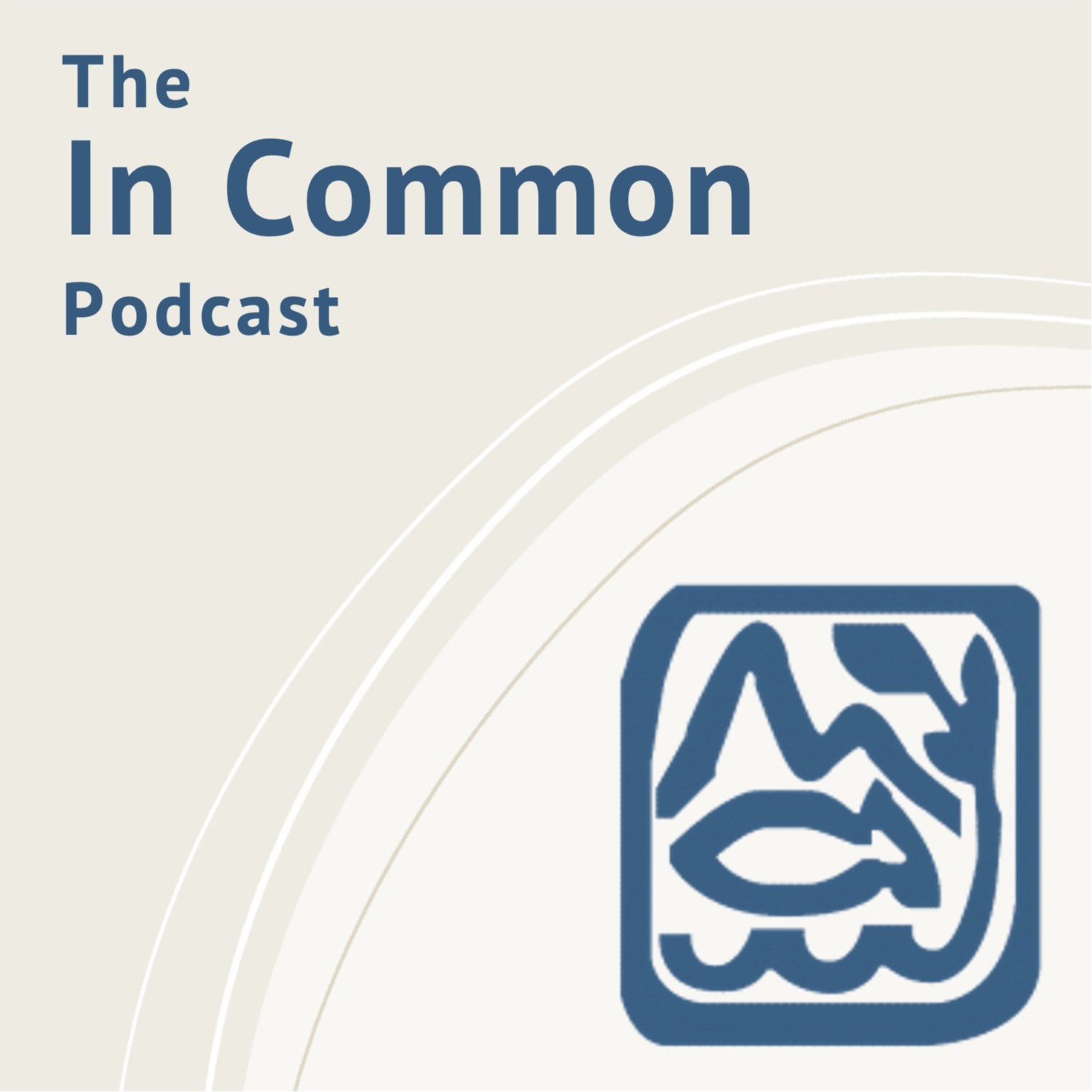
105.2K
Downloads
238
Episodes
In Common explores the connections between humans, their environment and each other through stories told by scholars and practitioners. In-depth interviews and methods webinars explore interdisciplinary and transdisciplinary work on commons governance, conservation and development, social-ecological resilience, and sustainability.
In Common explores the connections between humans, their environment and each other through stories told by scholars and practitioners. In-depth interviews and methods webinars explore interdisciplinary and transdisciplinary work on commons governance, conservation and development, social-ecological resilience, and sustainability.
Episodes

Friday Apr 07, 2023
Insight Episode #49: Achim Schluter on privatization
Friday Apr 07, 2023
Friday Apr 07, 2023
This insight episode comes from full episode eighty-eight with Achim Schluter.
Achim is a Professor Social Systems and Ecological Economics at Jacobs University in Bremen, Germany, as well as the Social Science Department leader and head of the Institutional and Behavioral Economics working group at the Leibniz Center for Tropical Marine Research.
Achim talks with Stefan about the privatization of the ocean, specifically thinking about both the problems it creates and the potential to use it as a method of ensuring the rights of local actors and long-term sustainability.
Achim's Institutional Webpage: https://www.leibniz-zmt.de/en/marine-tropics-research/who-we-are/achim-schlueter-en.html
Achim's Google Scholar: https://scholar.google.de/citations?user=L5ONyegAAAAJ&hl=de
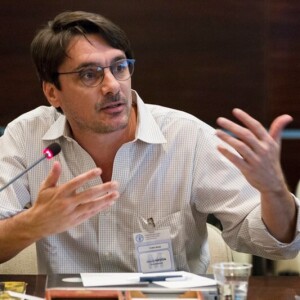
Monday Mar 27, 2023
Science and Practice #8: Paying for Conservation with Eddy Niesten
Monday Mar 27, 2023
Monday Mar 27, 2023
In this episode, Michael speaks with Eddy Niesten, an independent consultant who spent more than a decade working for Conservation International as a conservation economist.
During his time at Conservation International, Eddy played a role in developing and implementing what is known as the Conservation Stewards Program, an example of the payment for ecosystem services (PES) approach. In a recent episode of the podcast, Michael spoke with Sarah Milne about a book that she wrote in which she is critical of the conservation stewards program as it was implemented in Cambodia. In this discussion, Eddy helps Michael understand the various components of the program and its logic.
Eddy and Michael conclude their conversation by discussing the steps that Eddy has taken since leaving Conservation International and some of the changes within the organization that he experienced during his career there.
Resources:
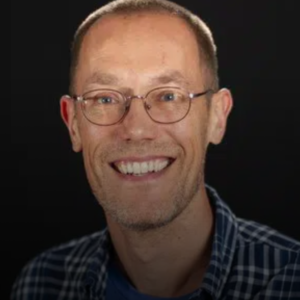
Friday Mar 10, 2023
Friday Mar 10, 2023
This insight episode comes from full episode eighty-four with Mark Moritz.
Mark is a professor of anthropology at the Ohio State University who has studied pastoralist communities around the world.
Mark talks with Michael about his interpretation of open property regimes as an adaptation to resource scarcity and vulnerability in pastoralist systems, specifically discussing the Pashtun system in Afghanistan and his research in Cameroon to illustrate his interpretation, and the different understanding of rights in these communities.
Mark’s website: https://anthropology.osu.edu/people/moritz.42
Moritz, M. (2016). Open property regimes. International Journal of the Commons, 10(2), 688.
Moritz, M., et al. 2018. Emergent Sustainability in Open Property Regimes. Proceedings of the National Academy of Sciences of the United States of America 115 (51): 12859–67.
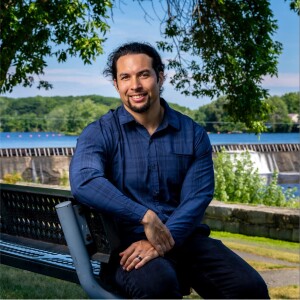
Monday Feb 13, 2023
114: Collaboration starts with Coffee, with Tony Sutton
Monday Feb 13, 2023
Monday Feb 13, 2023
In this episode, Michael speaks with Tony Sutton, Assistant professor of Native American Food Systems at the University of Maine. Michael and Tony talk about the role of academics and researchers working with local communities and Tony’s research with the Wabanaki people who he works with as an equal partner. Tony also discusses how he views the distinction between scientific and indigenous knowledge as artificial and unhelpful. Finally, they discuss a project that Tony is involved in called the Maine Shellfish Learning Network (https://themudflat.org/). This network seeks to build relationships and communication around issues facing clam and mussel harvesters in Maine. One particularly pressing issue that Tony discusses with Michael is the loss of access such harvesters are facing as a result of displacement by incoming homeowners who purchase houses on the coast of Maine, as well as through Maine state policy that privileges sedentarism, requiring residence in a town as a criterion for fishery access, which marginalizes the Wabanaki and other people whose lifeways involve moving through a landscape to adapt to changes in resource availability.
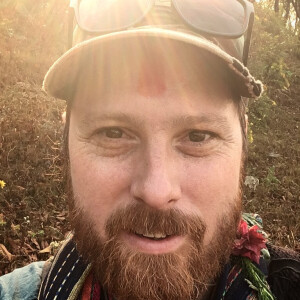
Monday Feb 06, 2023
113: Conducting research on a large scale with Johan Oldekop
Monday Feb 06, 2023
Monday Feb 06, 2023
In this episode, Divya speaks with Dr. Johan Oldekop. Johan is a senior lecturer at the Global Development Institute at the University of Manchester. He conducts interdisciplinary research and uses large-scale publicly available datasets to understand tradeoffs and synergies between conservation and development outcomes.
In this conversation, they primarily focused on Johan’s work on the impact evaluation of the zero hunger program in Brazil and his parallel research exploring the links between forests and livelihoods in the global south.
For both these projects, Johan conducted large-scale research and worked with big datasets. As we discussed these projects, it was interesting to learn what working on a large scale with big datasets looks like, including its advantages and also some of the key limitations.
Johan shared that in his research on the impact evaluation of the zero hunger program, a program that was implemented to meet the sustainable development goal of reducing hunger in Brazil, he found that in addition to addressing hunger, the program also improves households’ access to nutrition and address the supply chain issues of agriculture production. Johan emphasized that it is important to evaluate and understand the multidimensional impacts of social protection programs so they can be implemented to their fullest potential and yield maximum benefits.
For his research on exploring forest-livelihood linkages in the global south, Johan’s research showed that forest management and restoration programs that prioritized community rights are more likely to reduce deforestation and poverty and eventually align with global goals for climate mitigation, environmental justice, and sustainable development.
In the end, Divya and Johan wrapped up the conversation with a discussion on Johan’s upcoming research project, which aims to examine the drivers of reforestation and sustainable forest transitions in India, Nepal, Brazil, and Mexico.
References:
Oldekop, J. A., Holmes, G., Harris, W. E., & Evans, K. L. (2016). A global assessment of the social and conservation outcomes of protected areas. Conservation Biology, 30(1), 133-141.
Oldekop, J. A., Sims, K. R., Karna, B. K., Whittingham, M. J., & Agrawal, A. (2019). Reductions in deforestation and poverty from decentralized forest management in Nepal. Nature Sustainability, 2(5), 421-428.
Hajjar, R., Oldekop, J. A., Cronkleton, P., Newton, P., Russell, A. J., & Zhou, W. (2021). A global analysis of the social and environmental outcomes of community forests. Nature Sustainability, 4(3), 216-224.
Oldekop, J. A., Rasmussen, L. V., Agrawal, A., Bebbington, A. J., Meyfroidt, P., Bengston, D. N., … & Wilson, S. J. (2020). Forest-linked livelihoods in a globalized world. Nature Plants, 6(12), 1400-1407.
Erbaugh, J. T., & Oldekop, J. A. (2018). Forest landscape restoration for livelihoods and well-being. Current Opinion in Environmental Sustainability, 32, 76-83.
Oldekop, J. A., Chappell, M. J., Peixoto, F. E. B., Paglia, A. P., do Prado Rodrigues, M. S., & Evans, K. L. (2015). Linking Brazil’s food security policies to agricultural change. Food Security, 7, 779-793.
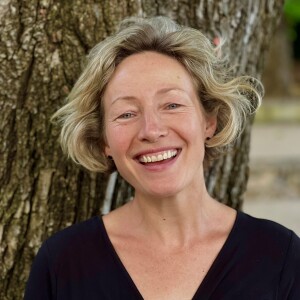
Monday Jan 30, 2023
Science and Practice #7: Questioning Conservation with Sarah Milne
Monday Jan 30, 2023
Monday Jan 30, 2023
In this episode, Michael speaks with Sarah Milne, a senior lecturer at the Crawford School of Public Policy at the Australian National University about her recent book, “Corporate Nature: An Insider’s Ethnography of Global Conservation”.
In the book, Sarah recounts her experience with a conservation policy implemented in the Cardamom mountains of Cambodia by a major international environmental NGO, Conservation International. This policy is called a Conservation Agreement, and it is a type of payment for ecosystem services, or PES, policy. These involve an external actor paying a local resource user as an individual or a group to incentivize them to provide important public goods, in this case forest conservation. Sarah describes how the new conservation agreement model developed within Conservation International and how it grew into a corporate product to be applied in a range of contexts. Sarah worked on the ground in Cambodia as this policy was implemented, and describes the challenges it met when the simplifying theory and requirements of the model confronted political and ecological complexity in the field. An important point that Sarah makes is that we need to worry less about the promotion of a particular model and more about developing an “ethics of practice”.
Website: https://crawford.anu.edu.au/people/academic/sarah-milne
References:
Milne, S. 2022. Corporate Nature: An Insider’s Ethnography of Global Conservation. University of Arizona Press.
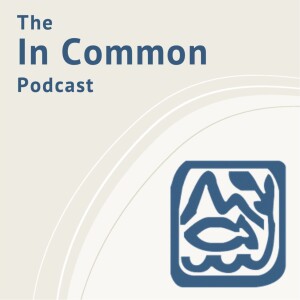
Friday Jan 27, 2023
Insight Episode #48: Daniel Decaro on self-determination theory
Friday Jan 27, 2023
Friday Jan 27, 2023
This insight episode comes from full episode eighty-two with Daniel Decaro.
Daniel is an associate professor at the University of Louisville with a joint appointment in the Department of Urban and Public Affairs and the Department of Psychological and Brain Sciences.
Daniel speaks with Michael about the basics of self-determination theory, and what he would add to the theory to expand the definition of self-determination.
Daniel's website: https://louisville.edu/psychology/d-decaro

Tuesday Jan 24, 2023
Tuesday Jan 24, 2023
This week Dustin speaks with Dr. Soumya Balasubramanya, senior economist at the World Bank based with its global environmental practice. Soumya is trained as a development economist and works on applied research projects at the intersection of environment, poverty and development across Asia and Africa. Before joining the Bank in 2022, Dr. Balasubramanya spent 10 years at the International Water Management Institute, a part of the Consultative Group on International Agricultural Research, rising to group leader in economics. Her work has demonstrated extraordinary range and rigour, in her own words focused on “advancing knowledge on understanding the fractal vulnerabilities faced by the poor”. We discuss this sweep of work in three major parts. We start with the spark for becoming a development economist and what it means to think like an economist in terms of evidence and connections to other fields. We continue by exploring why we know so little about key topics in water, agriculture and development. We discuss why it is important to learn from failure, taking a deep dive into India’s groundwater management and the uneven success of policy experiments with energy pricing reforms and solar irrigation. We conclude by discussing the insights for early career researchers seeking to work in development research and what it is like to work at large development organizations in this path.
Soumya's website: https://soumyabalasubramanya.com/
Further reading:
Balasubramanya, S., Buisson, M-C. 2022. Positive incentives for managing groundwater in the presence of informal water markets: perspectives from India. Environmental Research Letters, 17, 101001.
Balasubramanya, S., Brozovic, N., Fishman, R., Lele, S., Wang, Z. 2022. Managing irrigation under increasing water scarcity. Agricultural Economics, 53, 976-984.
Buisson, M-C., Balasubramanya, S., Stifel, D. 2021. Electric pumps, groundwater, agriculture and water buyers: evidence from West Bengal. Journal of Development Studies, 57, 1893-1911.
Balasubramanya, S., Stifel, D. 2020. Water, agriculture and poverty in an era of climate change: why do we know so little? Food Policy, 93.
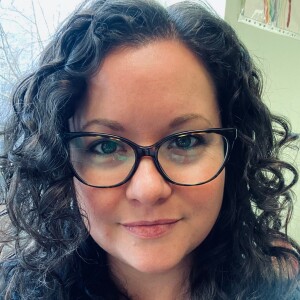
Monday Jan 16, 2023
112: Reimagining narratives of death and extinction with Dr. Sarah Bezan
Monday Jan 16, 2023
Monday Jan 16, 2023
In this episode, Hita speaks with Dr. Sarah Bezan who is a scholar of environmental humanities currently employed as a Lecturer in Literature and the Environment at the Radical Humanities Laboratory at University College Cork in Ireland. Previously she was a post-doctoral Research Associate at the Leverhulme Centre for Anthropocene Biodiversity in The University of York in the United Kingdom. In this conversation, they chat about how participating in a paleo dig and uncovering a Mosasaur skeleton sparked in her a curiosity that led to her current engagement with making sense of extinction. They speak about artistic representations of extinct animals such as Harri Kallio’s representations of the dodo bird on an island in Mauritius or Mark Dion’s Ichthyosaur installation, and how they manipulate imaginaries surrounding the temporal and spatial boundaries of the extinct species. In describing these imaginaries, they discuss the idea of animal atopias, a term she coined to refer to those placeless places surrounding extinction, where the animal exists not on a spatially defined space but a constructed one, evoking a nostalgia for what once was. They discuss about Sarah’s experiences on the Galapagos Islands where she studied the taxidermic specimen of Lonesome George, the last representative of the Pinta island tortoises and her observation that the extinct body is essentially an exploded one raising questions about what it means to be the last representative of a species and the responsibility that death places upon such individuals. They reflect upon how practices of taxidermy and museum curatorship are essentially performative, designed to evoke a specific emotion or knowledge, rendering them hyper visible, while subsuming others. They discuss de-extinction projects such as the Jurassic World like attempts at reviving the woolly mammoth or even theoretical ideas of re-creating Neanderthals as proposed by George Church are all ways in which we attempt to revive prehistoric fantasies of the human – a fantasy nevertheless that is separate from the idea of the modern human. The conversation concludes with some reflections on interdisciplinary research and the responsibility that early career scholars are placed with when attempting to straddle multiple schools of thought.
Sarah’s personal website: https://www.sarahbezan.com/
Some of the references we cite during the conversation are listed below:
- “Dodo Birds and the Anthropogenic Wonderlands of Harri Kallio.” Parallax, 25, no. 4, 2019: 427-445. (*To be reprinted as a foreword to Harri Kallio, The Dodo and Mauritius Island: Imaginary Encounters, 2nd Edition. Stockport, UK: Dewi Lewis Publishing, 2023).
- “The Endling Taxidermy of Lonesome George: Iconographies of Extinction at the End of the Line.” Configurations: A Journal of Literature, Science, and Technology, vol. 27, no. 2, 2019, pp. 211-238. Co-Edited by Sarah Bezan and Susan McHugh.
- “A Darwinism of the Muck and Mire: Decomposing Eco- and Zoopoetics in Stephen Collis and Jordan Scott’s decomp.” In Texts, Animals, Environments: Zoopoetics and Ecopoetics. Ed. Roland Borgards, Catrin Gersdof, Frederike Middelhoff, and Sebastian Schönbeck. Freiburg: Rombach Verlag “Cultural Animal Studies Series,” 2019, 241-253.
- Animal Remains. Co-edited by Sarah Bezan and Robert McKay. Routledge Perspectives on the Non-Human in Literature and Culture Series. London: Routledge, 2022.
- “Taxidermic Forms and Fictions.” A special issue of Configurations: A Journal of Literature, Science, and Technology, 27, no. 2, 2019, pp. 131-138. Co-Edited by Sarah Bezan and Susan McHugh, Johns Hopkins University Press.
- Heise, Ursula K. Imagining Extinction: The Cultural Meanings of Endangered Species, Chicago: University of Chicago Press, 2016.
- Jørgensen, Dolly. “Endling, the Power of the Last in an Extinction-Prone World.” Environmental Philosophy 14, no. 1 (2017): 119–38.
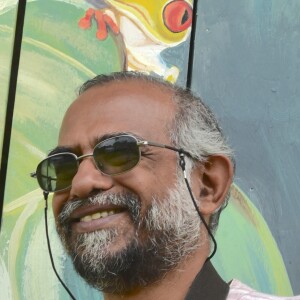
Wednesday Jan 11, 2023
Science and Practice #5: Radical Alternatives to Development with Ashish Kothari
Wednesday Jan 11, 2023
Wednesday Jan 11, 2023
In this episode, Hita and Michael speak with noted Indian environmentalist Ashish Kothari, who works at the interface between development and environment and focuses particularly on radical alternatives to development discourses. Ashish is a familiar name to people working in the Indian environmental context as well as those who engage with degrowth, not least because of his strong involvement in grassroots environmental movements such as the Narmada Bachao Andolan in the country. He is one of founders of Kalpavriksh, a Non-Profit Organisation in India which deals with environmental and development issues. In addition, he wears many other hats – as an academic and teacher, as a member of international steering committees such as those of the World Commission on Protected Areas or the Convention on Biodiversity Alliance. He has also worked as a member of several Government of India committees including those responsible for assessing India’s Forest Rights Act and drafting the country’s National Wildlife Action Plan and Biodiversity Act. He is also the coordinator of Vikalp Sangam, a platform that brings together organisations and individuals who work on development alternatives across India. He is also one of the editors of the book Pluriverse: a post development dictionary.
In our conversation Ashish reflects upon the influence of his early childhood experiences with environmental activism – particularly protests against the shooting of the Great Indian Bustard by Saudi Arabian Princes and against tree felling in the Delhi Ridge Forest upon his engagement with environmental conservation. He asks the pertinent question: can wildlife conservation happen at the cost of human rights? We speak about the eternal debate of development vs the environment, and his conviction that the idea of development per se itself is deeply flawed. Instead, he says, what we need are different notions of well-being emerging from different parts of the world serving to replace the idea of development. We spoke about the dangers of viewing community led action as yet another panacea but also recognising the inherent strength present within them. We discuss moving beyond dichotomies of community vs government instead looking towards alternatives where we can enable communities to regain their balance in different ways. We reflect upon the importance of building and being part of networks that both keep you going but also stand ready to continue in your place, and how that very act of working together poses further challenges if one were to consider identity building, branding or even issues of satisfying personal egos. We end with some reflection on Ashish’s conceptualization of the term Eco Swarajya and the challenges associated with misappropriation of culturally or spiritually loaded terms.
Some of the initiatives that Ashish mentions during this interview are:
Vikalp Sangam: https://vikalpsangam.org/
Kalpavriksh: https://kalpavriksh.org/
Radical Ecological Democracy: https://radicalecologicaldemocracy.org/
Global Tapestry of Alternatives: https://www.globaltapestryofalternatives.org/
Pluriverse: a post development dictionary: https://www.ehu.eus/documents/6902252/12061123/Ashish+Kothari+et+al-Pluriverse+A+Post-Development+Dictionary-2019.pdf/c9f05ea0-d2e7-8874-d91c-09d11a4578a2
Ashish’s website and blog: https://ashishkothari.in/ ; https://ashishkothari51.blogspot.com/
